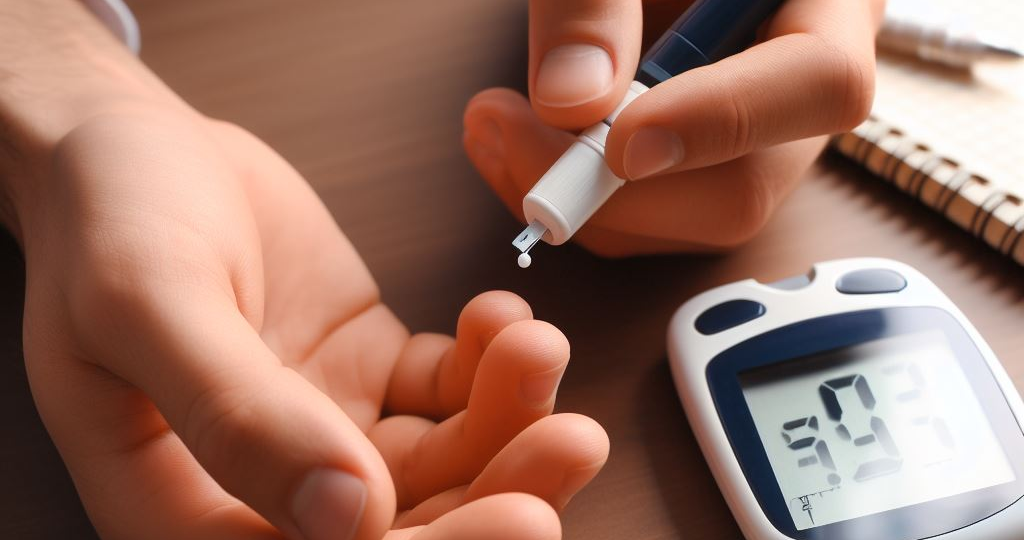Introduction
High blood sugar, also known as hyperglycemia, is a condition that affects millions of people worldwide. It’s a common issue for those with diabetes but can also occur in individuals without this condition. Elevated blood sugar levels can lead to various health problems, making it essential to learn how to control and manage them effectively.
One of the key ways to manage high blood sugar is through dietary choices. What you eat plays a significant role in determining your blood sugar levels.
In this comprehensive guide, we’ll explore the best foods to eat and the ones to avoid to help you maintain optimal blood sugar levels. Let’s dive into the world of managing high blood sugar through proper nutrition.
Understanding High Blood Sugar
Before we delve into the specifics of controlling blood sugar through your diet, it’s crucial to understand what high blood sugar is. High blood sugar, or hyperglycemia, occurs when there’s an excess of glucose (sugar) in your bloodstream. This can happen due to various reasons, including a poor diet, a lack of physical activity, and underlying medical conditions like diabetes.
Persistent high blood sugar can have severe health consequences. It can damage your blood vessels, nerves, and organs over time, increasing the risk of heart disease, kidney problems, eye issues, and more. Therefore, it’s essential to manage and control high blood sugar effectively, and a significant part of this control is through the foods you eat.
The Role of Diet in High Blood Sugar Management
HIGH BLOOD SUGAR DIET COOKBOOK

Diet plays a central role in managing high blood sugar. The foods you consume have a direct impact on your blood glucose levels. Understanding how various nutrients and foods affect your blood sugar is the first step toward effective control. Here are some key dietary factors to consider:
- Carbohydrates: Carbohydrates are the primary nutrient that influences blood sugar. When you consume carbs, they break down into glucose, which is absorbed into your bloodstream. This is why monitoring carbohydrate intake is crucial for blood sugar management.
- Glycemic Index (GI): The glycemic index is a scale that ranks carbohydrates based on how quickly they raise blood sugar levels. Foods with a high GI cause a rapid spike in blood sugar, while those with a low GI result in a slower, more controlled increase.
- Fiber: Fiber is an essential component of a blood-sugar-friendly diet. It helps slow down the absorption of sugar and can contribute to better blood sugar control.
Best Foods for Controlling High Blood Sugar

Now, let’s explore the foods that can help you maintain healthy blood sugar levels:
- Leafy Greens: Vegetables like spinach, kale, and collard greens are low in carbohydrates and high in fiber and nutrients, making them excellent choices for blood sugar control.
- Berries: Berries like blueberries, strawberries, and raspberries are low in sugar and high in antioxidants and fiber.
- Whole Grains: Opt for whole grains such as oats, quinoa, and brown rice over refined grains like white bread and white rice. These grains have a lower GI and are rich in fiber.
- Legumes: Foods like lentils, chickpeas, and black beans are excellent sources of protein and fiber, helping to stabilize blood sugar levels.
- Fatty Fish: Salmon, mackerel, and sardines are high in omega-3 fatty acids, which have been shown to improve insulin sensitivity and reduce inflammation.
- Nuts and Seeds: Almonds, chia seeds, and flaxseeds provide healthy fats and fiber, helping to control blood sugar.
- Cinnamon: This spice has been studied for its potential to improve insulin sensitivity and lower blood sugar levels.
Foods to Avoid for Better Blood Sugar Control
On the flip side, certain foods can lead to rapid spikes in blood sugar and should be limited or avoided.
- Sugary Beverages: Soda, fruit juices, and sweetened beverages are loaded with sugar and can cause a sudden surge in blood sugar levels.
- Processed Snacks: Chips, cookies, and other processed snacks are typically high in refined carbohydrates and unhealthy fats, contributing to poor blood sugar control.
- White Bread and Pasta: These foods have a high GI and can cause significant blood sugar spikes. opt for whole-grain alternatives instead.
- Highly Processed Foods: Foods like fast food, frozen meals, and sugary cereals often contain hidden sugars and unhealthy fats, making them unsuitable for blood sugar control.
- Candy and Sweets: It’s best to avoid candy, pastries, and desserts, which are typically high in sugar and provide little nutritional value.
- Fried Foods: Fried foods are high in unhealthy fats, which can lead to inflammation and insulin resistance.
The Importance of Portion Control
While making healthy food choices is crucial, portion control is equally important. Even nutritious foods can impact your blood sugar if you consume them in excess. To maintain balanced blood sugar levels, pay attention to portion sizes and aim for balanced meals.
Meal Timing and Consistency
In addition to food choices and portion control, the timing and consistency of your meals can impact blood sugar. Eating at regular intervals and avoiding long gaps between meals can help stabilize blood glucose levels.
Here are a few government websites where you might find relevant information.
Centers for Disease Control and Prevention (CDC)
The CDC provides valuable resources on diabetes, including information on managing high blood sugar, healthy eating, and lifestyle recommendations. https://www.cdc.gov/diabetes/index.html
National Institute of Diabetes and Digestive and Kidney Diseases (NIDDK)
NIDDK, part of the National Institutes of Health (NIH), offers extensive information on diabetes, including dietary guidelines, research, and resources.https://www.niddk.nih.gov/
Conclusion
In conclusion, managing high blood sugar is a critical aspect of overall health and well-being. By making informed choices about the foods you eat and avoiding those that can lead to blood sugar spikes, you can take control of your health and reduce the risk of complications associated with hyperglycemia. Remember that it’s essential to work closely with a healthcare professional or registered dietitian to create a personalized dietary plan that meets your specific needs.
Achieving and maintaining healthy blood sugar levels is a lifelong journey that requires dedication and ongoing adjustments. With the right knowledge and consistent effort, you can successfully manage high blood sugar and enjoy better health.
RELATED POSTS
View all




